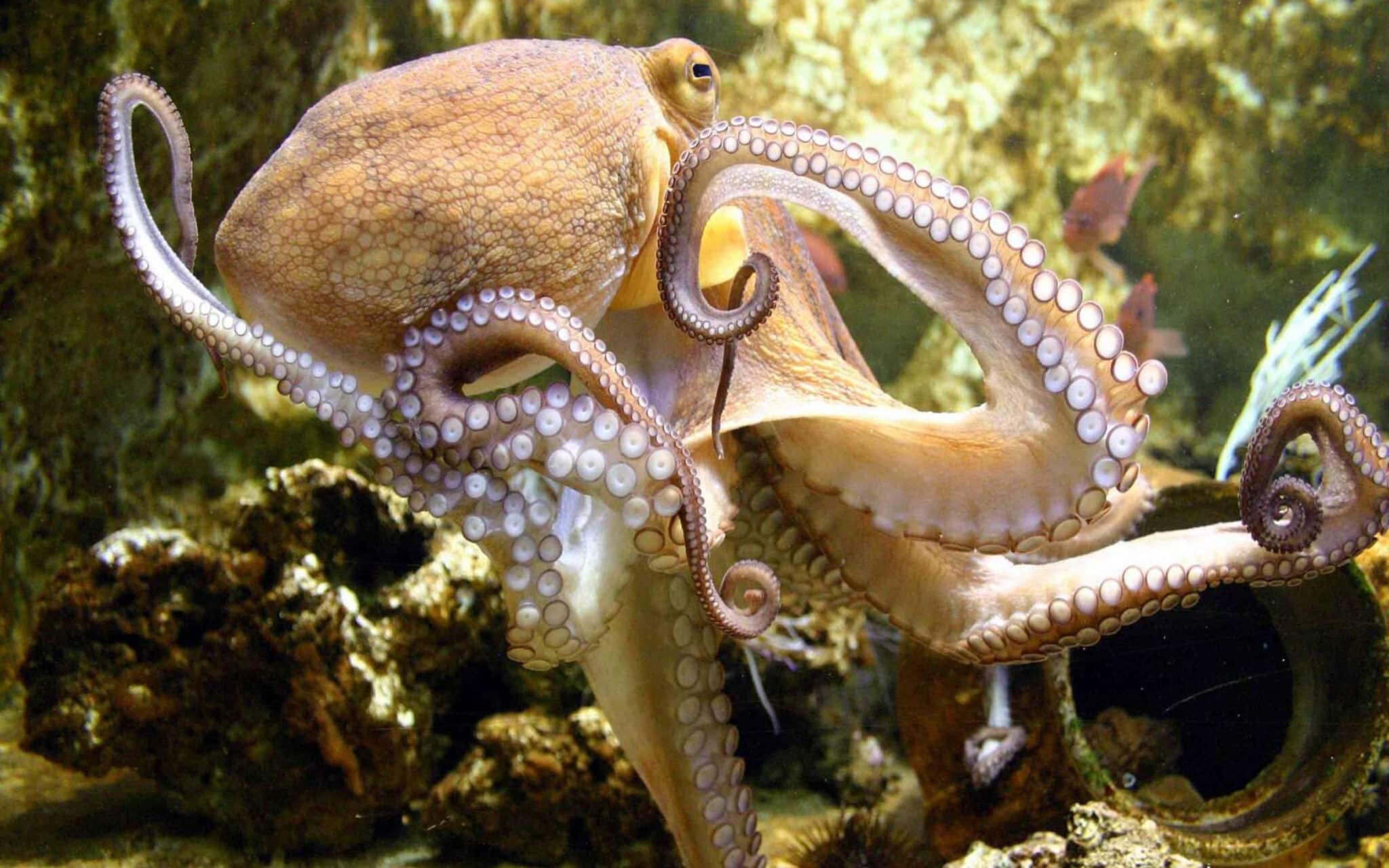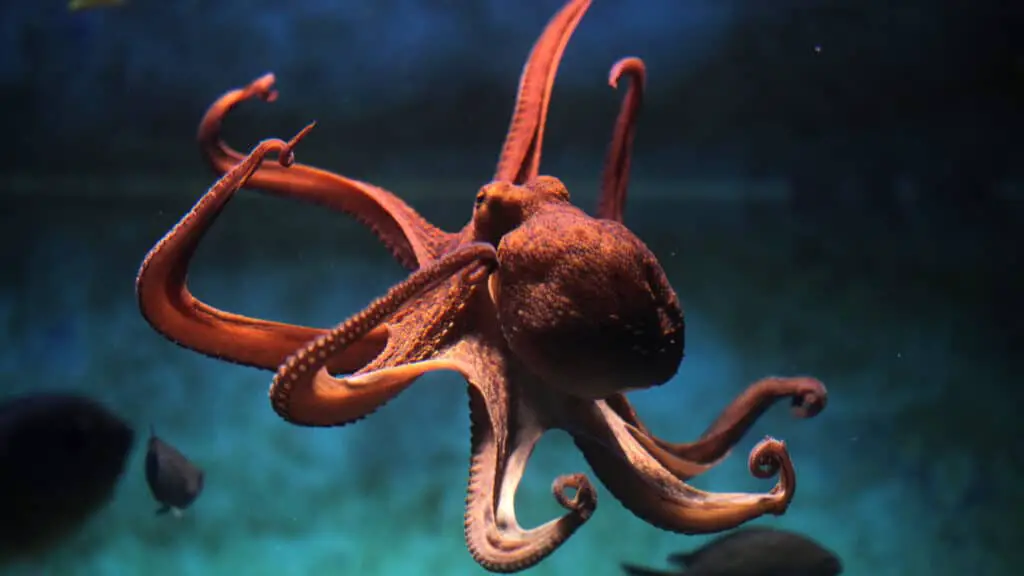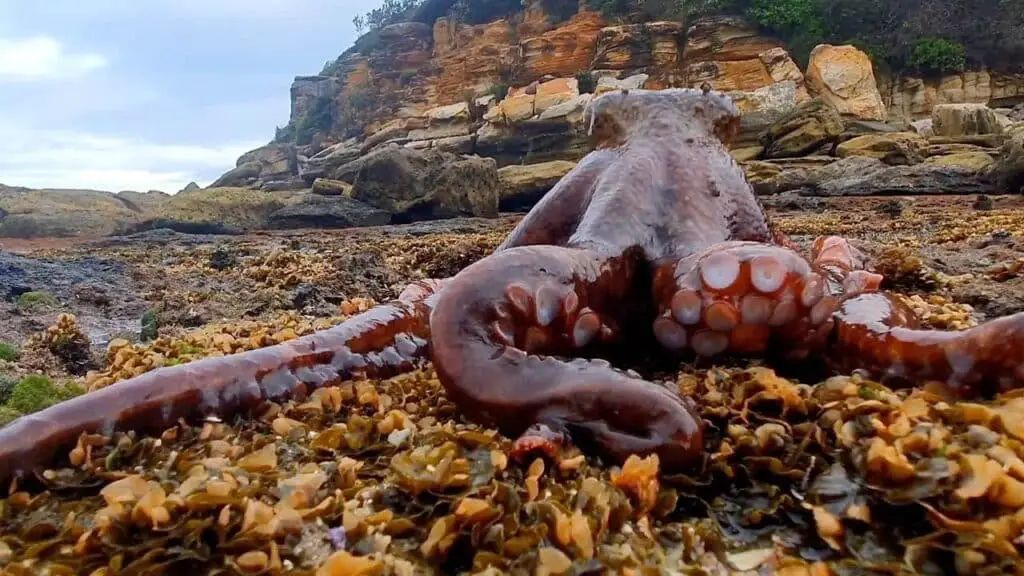Do Octopus Bites Hurt

Introduction
Do Octopus Bites Hurt: Octopuses, with their enigmatic intelligence and remarkable adaptability, have long captured the fascination of scientists, divers, and nature enthusiasts. These elusive cephalopods inhabit oceans worldwide, displaying an array of intriguing behaviors and survival strategies.
In this exploration of octopus bites, we delve into the world of these aquatic creatures and their interactions with humans. Octopuses are characterized by their beak-like mouths, designed primarily for tearing apart prey. While they typically use their formidable beaks to capture and consume crustaceans, mollusks, and fish, there are instances where they might come into contact with humans, either in the wild or in controlled environments such as aquariums.
Octopus bites, though relatively rare, can indeed be painful. The severity of the pain varies based on several factors, including the octopus’s species, size, and the circumstances surrounding the bite. Understanding the potential discomfort caused by octopus bites is essential for those who venture into their habitats, whether for research, recreation, or keeping them as exotic pets.
Throughout this discussion, we will address common questions about octopus bites, their risks, and methods for prevention and treatment. By shedding light on this intriguing aspect of octopus behavior, we aim to provide valuable insights into the interactions between these captivating creatures and the human world.

How painful is an octopus bite?
Octopuses’ beaks are sharp, and their saliva contains cephalotoxins that paralyze their prey! Most octopus bites aren’t fatal to humans, although they can cause swelling and pain.
The pain caused by an octopus bite can vary significantly depending on various factors. Octopuses have sharp, beak-like mouths designed for breaking down the tough shells of their prey. When they bite a human, the pain is often described as sharp and intense. It’s akin to being pinched or punctured by a hard, pointed object.
The severity of the pain can be influenced by several factors, including the size and species of the octopus. Some larger species may inflict more substantial bites, resulting in more discomfort. Additionally, the depth of the bite and the location on the body can impact the level of pain experienced.
It’s worth noting that while octopus bites can be painful, they are not typically life-threatening to humans. However, the pain can be accompanied by other sensations such as burning or stinging, and there is a risk of infection if the wound is not properly cleaned and treated.
While octopus bites are not the most common encounter, they can be painful. Understanding the potential pain and taking appropriate precautions when interacting with these intriguing marine animals is essential to ensure a safe and respectful coexistence in their underwater world.
What happens if a octopus bites you?
Paralyzing toxins
Other proteins, such as tryptamine oxidase, dissolve tissue and break it down “into a gel-like form,” Trautwein said. Octopus bites can cause bleeding and swelling in people, but only the venom of the blue-ringed octopus (Hapalochlaena lunulata) is known to be deadly to humans.
When an octopus bites a human, several things can happen depending on the circumstances and the species of octopus involved. The consequences of an octopus bite typically include:
- Pain and discomfort: The immediate effect of an octopus bite is often a sharp and intense pain, similar to being pinched or punctured. The severity of the pain can vary depending on factors such as the octopus’s size and the location and depth of the bite.
- Risk of infection: Octopus beaks can harbor bacteria, and when they puncture the skin, they can introduce these microorganisms into the wound. Proper wound care, including cleaning and disinfection, is essential to minimize the risk of infection.
- Bruising and swelling: In addition to the pain, the area around the bite may become bruised and swollen. This is a natural response of the body to tissue injury.
- Inflammation: The bite wound may become red and inflamed as the body’s immune system responds to the injury. This inflammation is part of the healing process.
- Long-term effects: In most cases, the effects of an octopus bite are temporary and subside as the wound heals. However, if not treated properly, an infected bite could lead to more serious complications.
While octopus bites are generally not life-threatening, they should not be underestimated. Seeking medical attention and following proper wound care procedures are essential to ensure a swift and healthy recovery if bitten by an octopus.
What does a octopus bite feel like?
Associated symptoms and signs of a blue-ringed octopus bite (sting) include excessive bleeding, numbness, nausea, vomiting, vision changes, and difficulty swallowing. For the first 5-10 minutes, the pain is mild but then begins to increase. Difficulty breathing and paralysis occur after about 10 minutes.
An octopus bite can be a unique and uncomfortable sensation. When an octopus bites, it typically feels like a sudden, sharp pinch or puncture. Imagine being pinched by a pair of pliers or bitten by a creature with a hard, beak-like structure. The pain is often intense and can be accompanied by a burning or stinging sensation.
The level of pain experienced can vary depending on several factors. The species of octopus matters, as larger species may inflict more substantial bites. Additionally, the depth and location of the bite on the body can influence the severity of the sensation.
People who have experienced octopus bites often describe the pain as quite memorable. While the discomfort can be significant, it’s important to note that octopus bites are typically not life-threatening to humans, although they can lead to complications if not treated properly.
It’s crucial to keep in mind that octopuses usually bite as a defensive response when they feel threatened or cornered. To minimize the risk of being bitten, it’s best to maintain a respectful distance and avoid provoking these remarkable creatures when encountering them in their natural habitat.
How strong is an octopus bite?
The toxin in the saliva paralyzes the prey while the blue-ringed octopus eats it. The TTX that a blue-ringed octopus injects is so deadly that 1 milligram of it can kill a human. It’s one of the most potent toxins on earth, and there is no antidote.
The strength of an octopus bite can vary depending on the species, size, and the specific circumstances surrounding the bite. Octopuses have beak-like mouthparts that are incredibly hard and sharp, designed to break down the tough shells of their prey. These beaks are composed of a hard protein called chitin, which is also found in the exoskeletons of insects and crustaceans.
While octopus beaks are formidable and capable of exerting substantial pressure, their biting force is generally not well-documented in scientific literature. However, it’s known that larger octopus species can deliver more powerful bites due to the increased size and strength of their beaks.
The strength of an octopus bite can also be influenced by the octopus’s behavior and motivation. Octopuses may bite humans if they feel threatened or cornered, and in such cases, they may use their beaks with greater force.
The exact strength of an octopus bite remains a subject for further scientific investigation, but it is widely acknowledged that octopus beaks are formidable structures designed for breaking down prey. When encountering octopuses in the wild or in captivity, it’s essential to exercise caution and avoid behaviors that might provoke a bite to minimize the risk of injury.
Is it safe to touch an octopus?
But the bright blue coloring says as boldly as it can: don’t touch, I’m toxic. Blue-ringed octopuses can kill humans by biting and injecting venom. They bite when they feel threatened, and since we’re so much bigger than they are, humans are certainly threatening!
Touching an octopus, while intriguing, should be approached with caution. Octopuses are remarkable and intelligent marine creatures, but their responses to human contact can vary widely depending on their species, personality, and individual experiences. Here are some factors to consider when determining whether it’s safe to touch an octopus:
- Species Matters: Different octopus species have varying temperaments. Some may be more curious and tolerant of human interaction, while others can be defensive and may bite if they feel threatened.
- Gentle and Respectful Touch: If you choose to touch an octopus, do so gently and with respect. Avoid sudden movements or rough handling, as this can stress the animal and increase the likelihood of a defensive response.
- Observe Body Language: Pay attention to the octopus’s body language. If it displays signs of stress or agitation, such as color changes, raised skin texture, or attempts to retreat, it’s best to refrain from touching it further.
- Risk of Bites: While octopus bites are generally not life-threatening, they can be painful and may introduce the risk of infection. Handling an octopus improperly or inappropriately may increase the likelihood of being bitten.
- Respect Protected Species: Some octopus species are protected by conservation laws, and it may be illegal to handle or disturb them in certain areas.
It can be safe to touch an octopus under the right circumstances, but it should always be done with caution, respect, and a thorough understanding of the species and its behavior. It’s essential to prioritize the well-being of the animal and minimize stress while fostering a respectful interaction between humans and these fascinating marine creatures.
Do octopus feel pain when killed?
It’s probable that the octopus’s reaction to pain is similar to a vertebrate. They can anticipate a painful, difficult, stressful situation—they can remember it. There is absolutely no doubt that they feel pain. The octopus has a nervous system which is much more distributed than ours.
The question of whether octopuses feel pain when killed is a topic of scientific debate and ethical concern. Octopuses are complex and highly intelligent animals, known for their problem-solving abilities and sophisticated behaviors. While they lack a centralized brain like mammals, they have a decentralized nervous system with a large number of neurons, particularly in their arms, which suggests a capacity for sensory perception.
Studies have shown that octopuses can exhibit responses to noxious stimuli, such as withdrawing from or avoiding painful situations. This suggests the possibility that they may experience some form of distress when subjected to harm. However, it’s important to note that their experience of pain, if it exists, may differ significantly from the way humans perceive it due to their unique neurobiology.
Ethical concerns about octopus suffering have prompted some scientists and advocates to call for more humane treatment in both scientific research and commercial fishing. In some countries, regulations have been implemented to minimize octopus suffering during capture and processing.
What should I do if I get bitten by an octopus?
If you find yourself bitten by an octopus, it’s essential to take immediate and appropriate steps to ensure your safety and minimize the risk of infection or complications. Here’s what you should do if you get bitten by an octopus:
- Clean the wound: Rinse the affected area thoroughly with clean, fresh water. Use mild soap to gently clean the wound and remove any dirt or debris. This initial cleaning helps reduce the risk of infection.
- Apply an antiseptic: After cleaning, apply an antiseptic solution or topical antibiotic ointment to the wound to further prevent infection. Cover the wound with a clean, sterile bandage or dressing.
- Seek medical attention: Even if the bite does not appear severe, it’s advisable to consult a healthcare professional, particularly if the wound is deep, bleeding heavily, or causing significant pain. Medical professionals can assess the wound, prescribe antibiotics if necessary, and provide appropriate care.
- Monitor for signs of infection: After receiving initial treatment, keep an eye on the bite wound for any signs of infection. These may include increased redness, swelling, pus discharge, fever, or chills. If you notice any of these symptoms, contact a healthcare provider promptly.
- Follow medical advice: Follow any instructions or prescriptions provided by your healthcare provider for wound care and infection prevention. Proper wound care is crucial to ensure a swift and healthy recovery.
Remember that octopus bites are generally not life-threatening, but they should be taken seriously to prevent complications. Seeking prompt medical attention and maintaining good wound hygiene are key steps in ensuring a safe and smooth recovery if bitten by an octopus.
Are there any known cases of fatal octopus bites?
There are no documented cases of fatal octopus bites in humans. Octopuses are generally not considered dangerous to humans in the same way that some other marine creatures, such as certain species of sharks or venomous jellyfish, can pose significant threats.
Octopuses are equipped with beak-like mouths designed to break down the shells of their prey, and they may use their beaks defensively if they feel threatened. While octopus bites can indeed be painful and may result in localized injury, such as puncture wounds or lacerations, they are not typically life-threatening.
It’s important to note that octopuses are not naturally aggressive towards humans. They tend to avoid confrontations whenever possible and are more likely to bite when they feel cornered, provoked, or perceive a threat.
In cases where octopus bites do occur, the primary concerns are managing the pain, preventing infection, and ensuring proper wound care. Seek medical attention for any octopus bite, especially if it’s deep, bleeding heavily, or causing severe pain. While fatalities from octopus bites are extremely rare, it is always advisable to exercise caution and respect these fascinating marine creatures when encountering them in their natural environment.

Conclusion
We have unraveled the intriguing relationship between these intelligent, ocean-dwelling creatures and humans. Octopus bites, though infrequent, can indeed cause pain, with the level of discomfort varying according to factors such as species, size, and the circumstances of the interaction.
While octopus bites are generally not life-threatening, they should not be taken lightly. Proper wound care, including cleaning and disinfection, is crucial to minimize the risk of infection. Seeking medical attention when bitten by an octopus live, particularly in cases of deep or severe bites, is a prudent course of action.
Prevention, however, remains the best strategy. Respecting octopuses’ space and avoiding actions that may provoke them are paramount when encountering these remarkable creatures. Whether you’re a diver, researcher, or simply an enthusiast, understanding the potential consequences of octopus bites contributes to safer and more responsible interactions.
Octopuses continue to captivate our imaginations with their intelligence and adaptability, reminding us of the diverse wonders of marine life. While the possibility of encountering a biting octopus adds an element of caution to our appreciation, it also underscores the importance of coexisting harmoniously with the incredible creatures that inhabit our oceans.



